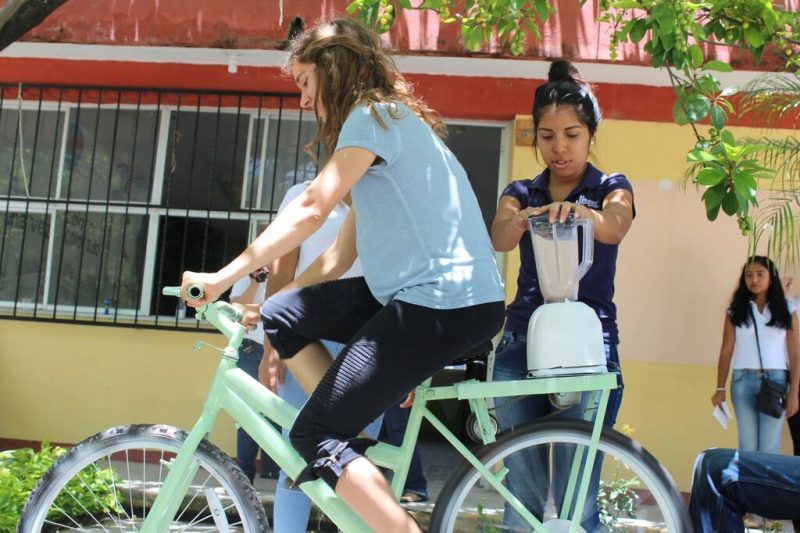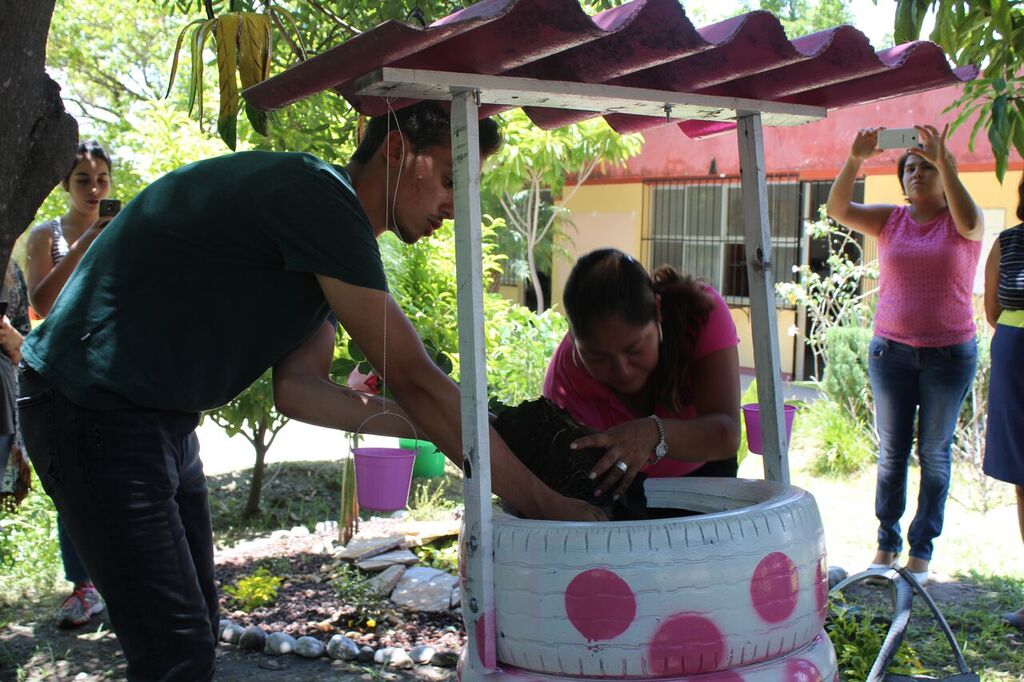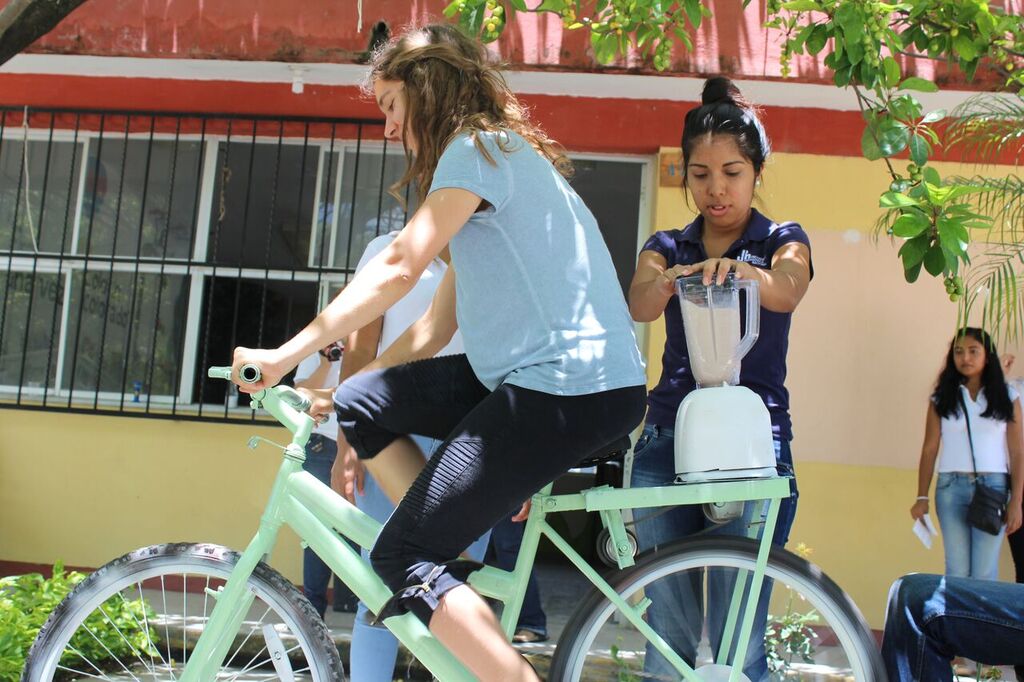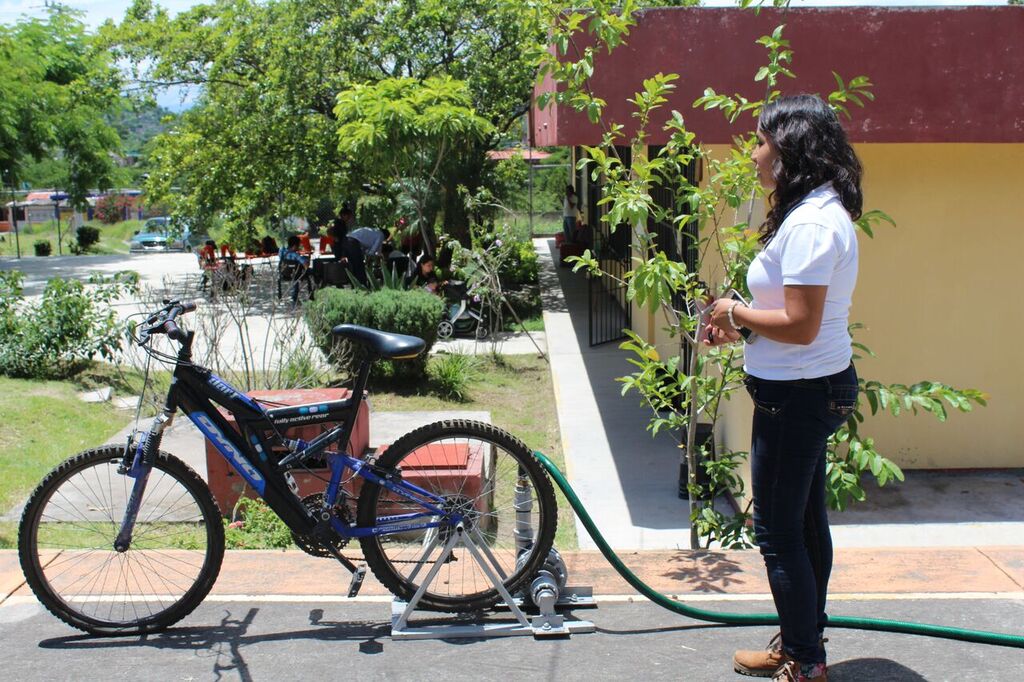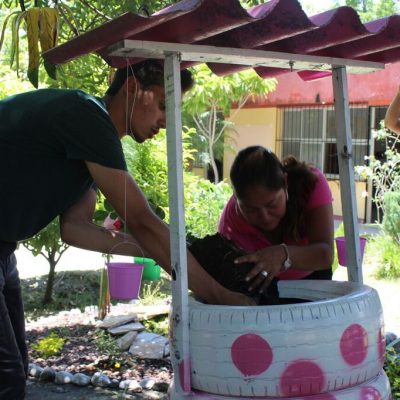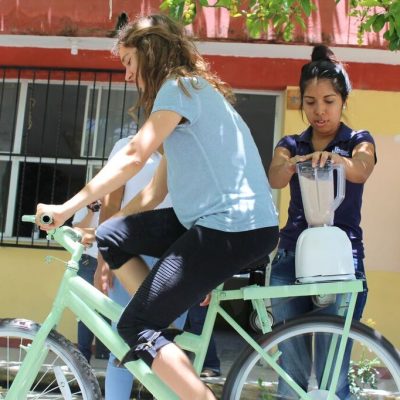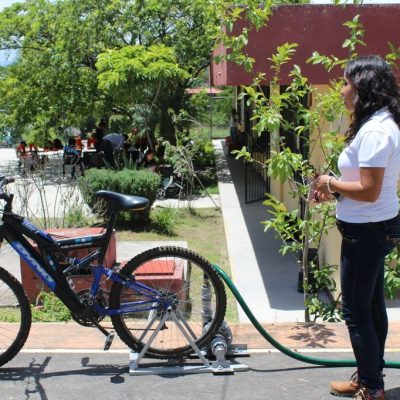Por Gisela Frías (Dawson College)
English follows
Asumir el desafío de transformarnos en un Plantel Educativo Sustentable es un primer paso que requiere conciencia de la problemática ambiental, del transcendente papel que jugamos como instituciones educativas y apertura para buscar formas de lograrlo. La sede UPN Galeana, desde el año 2012 ha asumido el reto de la sustentabilidad y su experiencia nos enseña la importancia de “ambientalizar” el currículo para que éste sea un vehículo para la concientización y acción ambiental dentro y fuera del plantel.
Una estrategia fundamental que esta Sede ha utilizado para avanzar en su reto de sustentabilidad es el incorporar en la formación de sus estudiantes materias de Cultura Ambiental y Educación para el Desarrollo Sustentable, también Investigación Acción como importantes catalizadores para la formación de agentes activos de cambio. Hoy estudiantes, maestros y personal de mantenimiento trabajan proyectos de sustentabilidad como lo son la bici-bomba, bici-licuadora, reutilización de llantas (y muchos otros). Estos proyectos no solo están contribuyendo a reducir la huella ecológica de la sede, también están aportando importantes herramientas para estudiantes de intervención educativa quienes buscar incidir en el bienestar de sus comunidades.
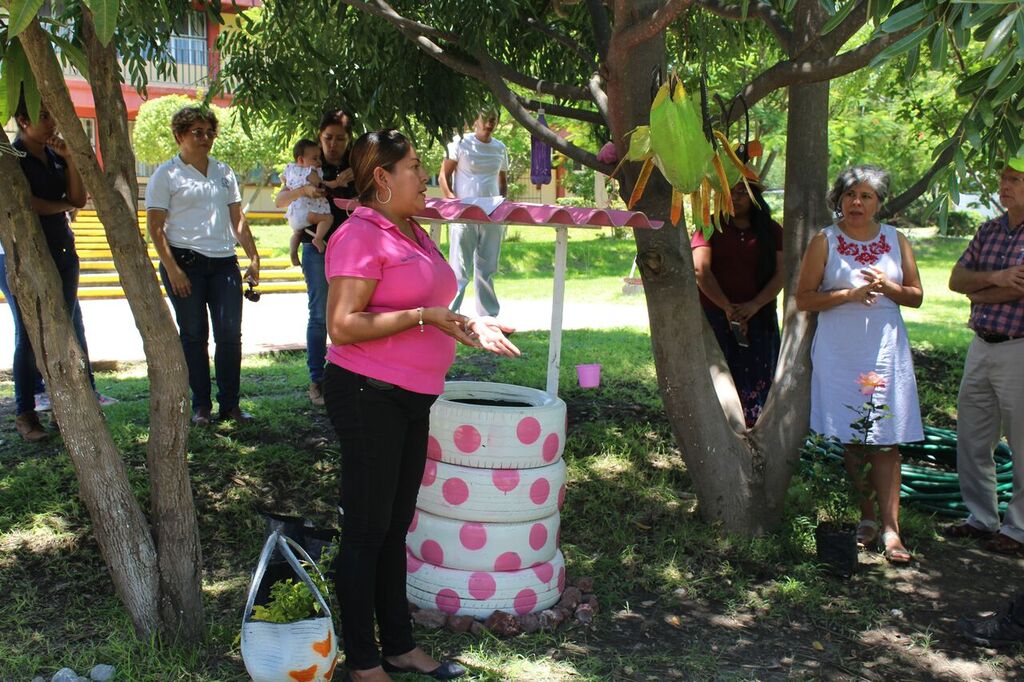
Uno de los proyectos es el de reutilización de llantas. Estudiantes de 5º semestre, por medio del curso de Investigación Acción, pusieron en marcha este proyecto. Su interés por reutilizar las llantas fue parte de un proceso de concientización. Delia, es una de las integrantes del grupo y su esposo tiene un taller mecánico y ahí pudo observar el gran número de llantas que se desechan cada día. Para su esposo esto significaba un gasto, pagar al municipio por llevarse las llantas, pero un poco de investigación la llevó a confirmar que se desechan en la comunidad cada día unas 300 llantas y que terminan tiradas o quemadas en el vertedero municipal, contaminando así el aire y el suelo y por consecuencia impactando la salud de los miembros de la comunidad. En algunos casos estas llantas son un ambiente propicio para la reproducción de las larvas del Aedes aegypti, dengue. Delia junto con su compañera Shema utilizan las llantas para construir diferentes tipos de jardineras y sillones para el plantel. Éstas están embelleciendo un área del plantel en el cual se contempla establecer un área para la convivencia y son un mensaje vivo que este plantel trabaja por la sustentabilidad. Por medio de este proyecto los estudiantes no solo han aportado a su plantel, también han sido parte de un proceso de concientización y transformación. Identificaron un problema y buscaron formas de enfrentarlo incluso capacitándose con conocimientos técnicos que antes no tenían.
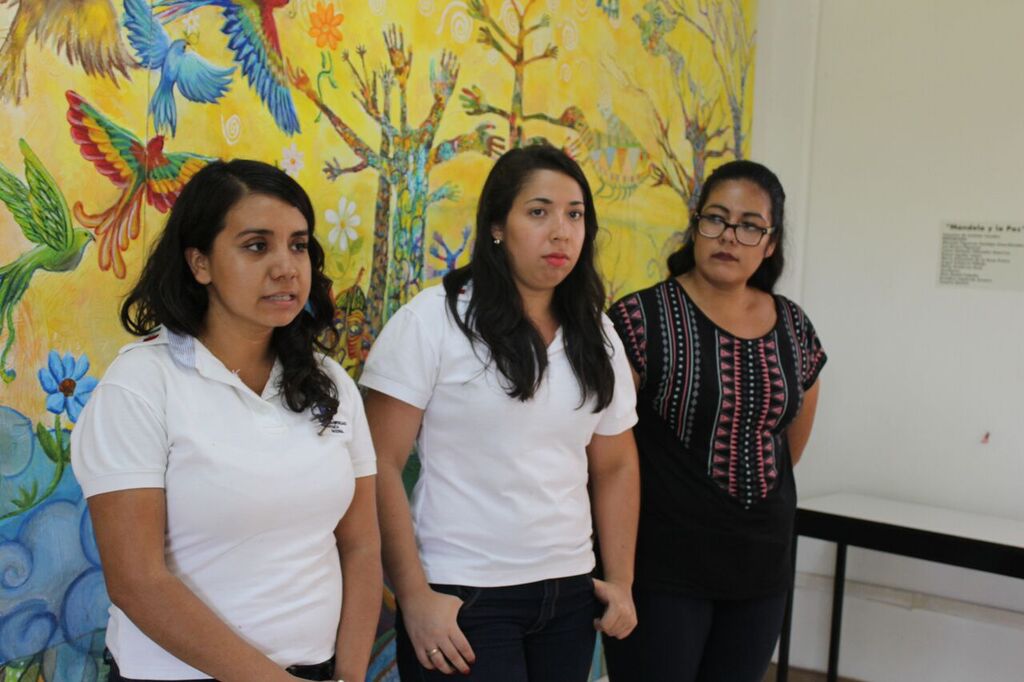
El plantel tiene una bici-licuadora y una bici-bomba. Estos proyectos comenzaron como componente de un curso y han sido un reto para sus creadoras: Gladis, Claudia y Ana Delia, también estudiantes de intervención educativa. Con el objetivo de concientizar sobre la importancia del ahorro del uso de energías no renovables se dieron a la tarea de aprender cómo adaptar una bicicleta para que sirva como motor que haga funcionar aparatos como una licuadora y una bomba de agua. En estos casos no solo trabajaron en construir sus bici-máquinas, también vieron la manera de hacerlo con materiales de re-uso, dándole así nueva vida a una licuadora, una bomba de agua y bicicletas que ya no servían. En todos los casos, el apoyo de sus padres fue fundamental para la adaptación de las máquinas.
Uno de los retos más importantes de la sustentabilidad es cambiar nuestro sistema de valores que es la causa principal de la actual crisis ambiental que vivimos. Estos proyectos han sido transformadores no solo para sus participantes, sino para la institución en sí y toda la comunidad. Cada uno de ellos habla de ser hoy más consiente de la problemática ambiental y se perciben como agentes activos de cambio en su institución y comunidad.
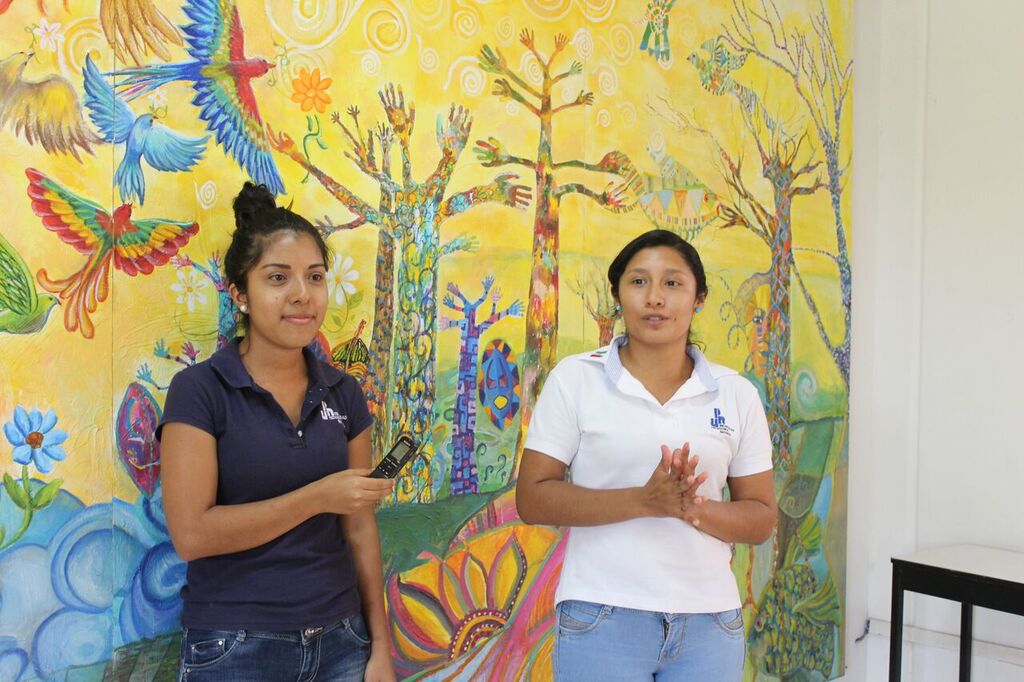
Su dedicación y trabajo en el plantel está también cambiando cómo la institución se define. Por medio de estos cursos, diseñados para fomentar el pensamiento crítico, la colaboración, creatividad e innovación, la resolución de problemas, se establece un nuevo paradigma impulsado por formas transformadoras de saber, pensar y aprender que conllevan a la acción.
Blog basado en entrevista con estudiantes y maestros (Gloria Rodríguez y Ruth Bustos) de la UPN Sede Galeana
“Environmentalizing” the curriculum and transforming the UPN Galeana
By Gisela Frías (Dawson College)
Translation by Abril Obregon
Taking on the challenge to transform our campus into a sustainable one is a first step that requires consciousness of the environmental problems, of the transcendent role we play as educational institutions and openness to find ways to achieve it. The UPN Galeana, has since the year 2012, taken on the challenge to become a sustainable campus and its experience shows us the importance of “environmentalizing” the curriculum so that it can serve as a link between awareness and environmental action both inside and outside of the institution.
A fundamental strategy that this campus has been using to progress on its challenge is incorporating, in the training of their students, courses such as Environmental Culture, Education for Sustainable Development and Action Research and using these as catalyzers for the training of active agents for change. Today, students, teachers and maintenance staff work on sustainability projects like the “Bike-pump”, “Bike-blender” and the tire reusing project (among others). These projects are not only helping to reduce the ecological footprint of the campus, they are also important tools for educational intervention students who seek to influence the wellbeing of their communities.

One of the projects is tire reusing. Students on their 5th semester, through the Action Research course, launched this project. Their interest of reusing tires was part of an awareness process. Delia, one of the members of the group and her husband own a mechanic workshop and there she noticed the large amount of tires that are disposed of every day. For her husband, this was an expense because he had to pay the municipality to take away the tires. After some research she confirmed that 300 tires are being disposed by the community daily and that these end up thrown out or burnt in the municipal dump, contaminating the air and ground and by consequence impacting on the health of the members of the community. In some cases these tires are a breeding ground for the reproduction of larvae of Aedes aegypti, dengue. Delia and her partner Sherma, used tires to build different types of flower and plant pots as well as couches for the campus. They are embellishing an area of the campus where they plan to build an area for conviviality and they are a living message that this campus is working for sustainability. Through this project, the students are not only giving to the campus but have also been part of an awareness and transformation process. They identified a problem and looked for ways to face it and even gained technical knowledge that they did not have before.

The campus has a “Bike-blender” and a “Bike-pump”. These projects started as a component of a course and have been a challenge for their creators: Gladis, Claudia y Ana Delia, also students in educational intervention. With the objective of bringing awareness about the importance of lowering the use of non-renewable energy, they gave themselves the task to learn to adapt a bicycle so that it could be used as a motor that can make electronic devices ,such as a blender and a water pump, work. In these cases, they not only worked on building their “Bikes-machines” but also found the way to make them with reused materials, giving a new life to the non-functional blender, water pump and bicycles. In all cases, the support of their parents was fundamental for the adaptation of the bikes.
One of the most important challenges of sustainability is to change our value system which is one of the main causes of the ongoing environmental crisis we are living. These projects have been transformative not only for their participants but also for the institution and the whole community. Each one of the participants talks about being more aware of environmental problema and see themselves as agents for change in their institution and community.

Their dedication and work in the campus is also changing how the institution defines itself. Through these courses, designed to encourage critical thinking, collaboration, creativity, innovation and problem solving, a new paradigm is established, driven by transformative ways of knowing, thinking and learning that lead to action.
Blog based on an interview with students and teachers (Gloria Rodríguez y Ruth Bustos) of the office of UPN Galeana

